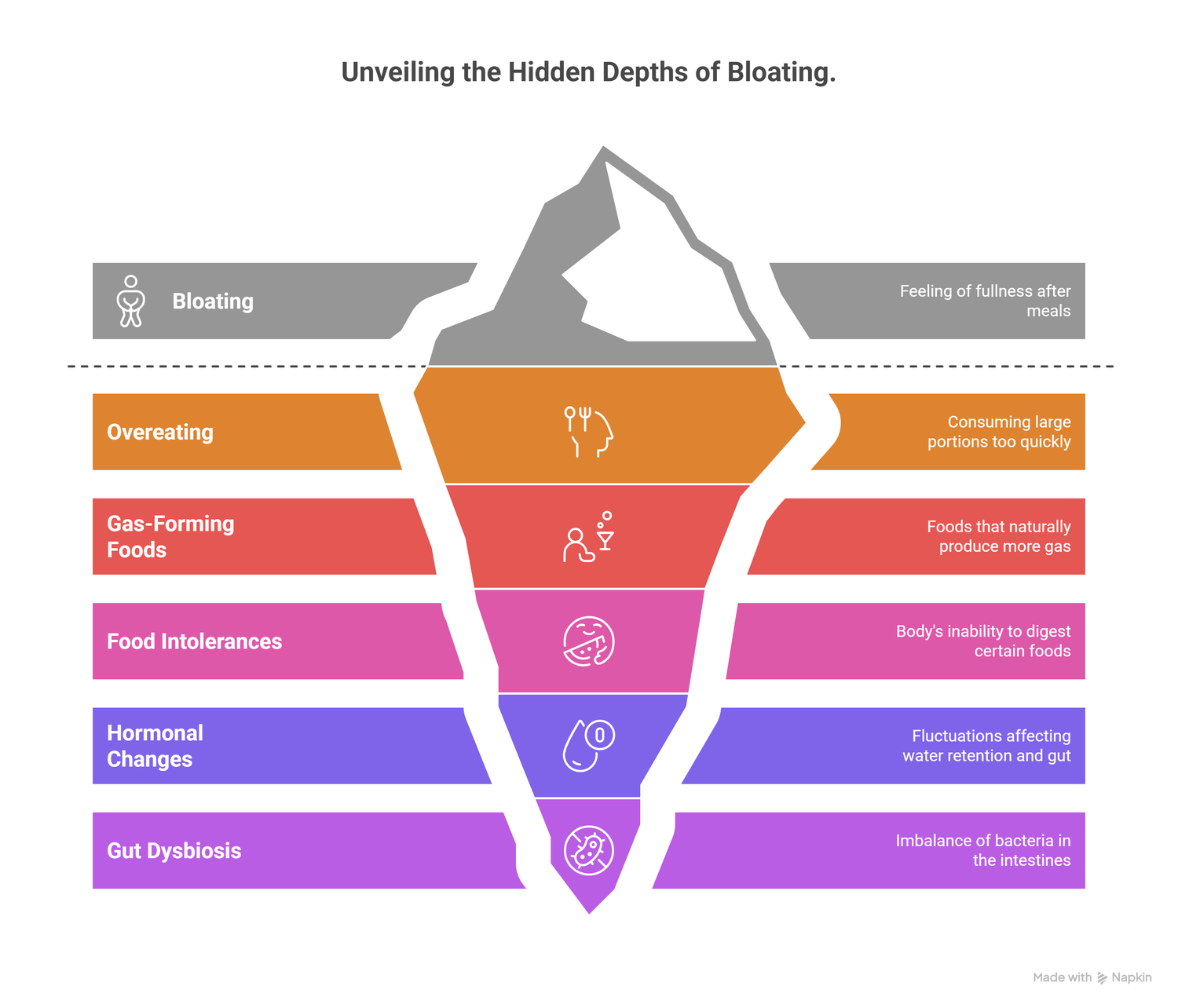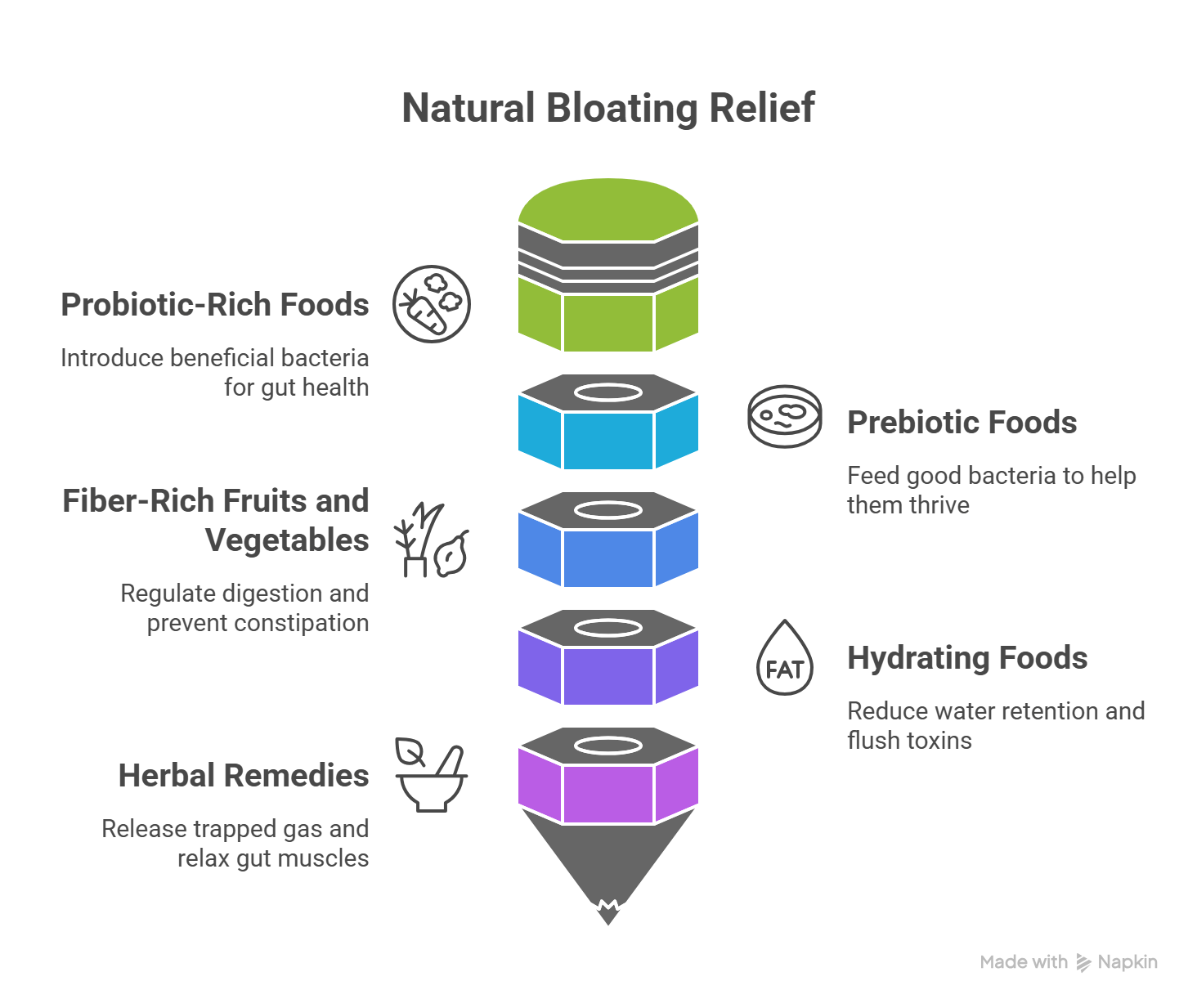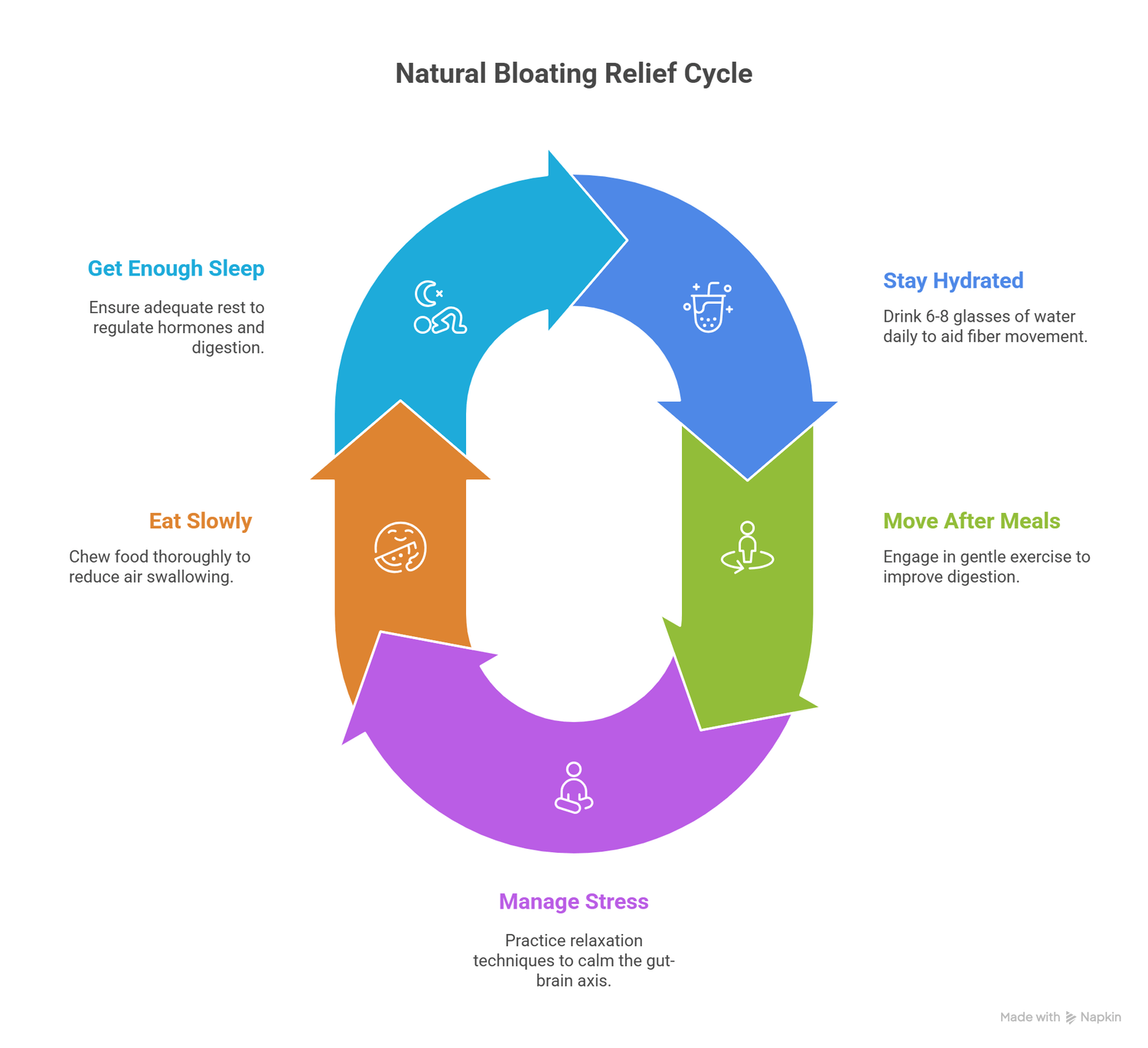
How to Heal Bloating Naturally: Proven Remedies for a Happier Gut
Introduction: Why Bloating Happens to So Many of Us
Almost everyone experiences bloating — that uncomfortable feeling of fullness, tightness, or swelling in the abdomen.
For some, it’s occasional and mild, but for others, it becomes a daily struggle that affects energy, confidence, and overall well-being.
Bloating isn’t a disease by itself — it’s a symptom that signals something off balance in your digestive system.
The good news? Most causes of bloating are manageable through simple dietary and lifestyle changes once you identify the triggers.
Understanding Bloating: What’s Really Going On Inside
Medically, bloating happens when gas builds up in the gastrointestinal tract, or when the gut muscles move too slowly, making digestion sluggish.
This can be caused by:
Swallowing too much air while eating or talking
Poor digestion due to enzyme deficiencies
Fermentation of undigested food by gut bacteria
Hormonal changes (especially in women during menstruation)
Certain medical conditions such as Irritable Bowel Syndrome (IBS) or lactose intolerance
When gas accumulates or movement slows, the abdomen expands — creating discomfort, distension, and sometimes visible swelling.
Common Causes of Bloating
Let’s look at the main culprits that can make you feel bloated after meals:
1. Overeating or Eating Too Fast
Eating quickly or consuming large portions doesn’t allow your digestive system to process food efficiently.
It leads to air swallowing and poor breakdown of food — both major bloating triggers.
2. High Intake of Processed and Gas-Forming Foods
Some foods naturally produce more gas, such as:
Beans, lentils, broccoli, and cabbage (contain raffinose)
Carbonated drinks and sparkling water
High-fat fried foods that slow digestion
Artificial sweeteners like sorbitol or xylitol
3. Food Intolerances
When the body can’t properly digest certain components, gas and discomfort follow.
Common intolerances include:
Lactose intolerance – difficulty digesting milk sugar
Gluten sensitivity or celiac disease – reaction to gluten in wheat, barley, rye
Fructose intolerance – poor absorption of fruit sugars
4. Hormonal Fluctuations
Women often notice bloating before or during their period due to estrogen and progesterone changes that affect water retention and gut movement.
5. Gut Dysbiosis
An imbalance between “good” and “bad” bacteria in the intestines can cause fermentation and gas buildup.

Foods That Can Help Reduce Bloating
Healing bloating naturally starts with what you eat.
Incorporating gut-friendly foods can improve digestion, reduce inflammation, and balance intestinal bacteria.
✅ 1. Probiotic-Rich Foods
These introduce beneficial bacteria that support healthy gut flora.
Yogurt with live cultures
Kefir
Sauerkraut and kimchi
Miso and tempeh
✅ 2. Prebiotic Foods
Prebiotics feed the good bacteria, helping them thrive.
Garlic
Onions
Bananas
Oats
Asparagus
✅ 3. Fiber-Rich Fruits and Vegetables
Soluble fiber helps regulate digestion and prevents constipation, another bloating trigger.
Choose:
Berries
Papaya (contains digestive enzyme papain)
Leafy greens
Zucchini
✅ 4. Hydrating Foods
Water-dense foods like cucumber, watermelon, and celery help reduce water retention and flush toxins naturally.
✅ 5. Herbal Remedies
Certain herbs have natural carminative properties — they help release trapped gas:
Peppermint tea (shown in studies to relax gut muscles)
Ginger (stimulates digestion and reduces nausea)
Fennel seeds (help expel gas)

Foods and Habits to Limit
To reduce bloating, try avoiding or minimizing:
Carbonated drinks and chewing gum (increase swallowed air)
Highly processed snacks with sodium and additives
Legumes and cruciferous vegetables in large amounts (introduce them gradually)
Artificial sweeteners that ferment in the gut
Late-night eating, which slows digestion
Lifestyle Tips to Heal Bloating Naturally
Diet alone isn’t enough — your daily habits play a huge role in gut comfort.
💧 1. Stay Hydrated
Water helps fiber move through the intestines smoothly.
Aim for 6–8 glasses daily, especially when eating more fiber.
🚶♀️ 2. Move After Meals
Gentle walking or stretching for 10–15 minutes after eating improves digestion and prevents gas buildup.
😌 3. Manage Stress
Chronic stress alters gut motility and bacteria.
Try deep breathing, yoga, or mindfulness to calm the gut-brain axis.
🕐 4. Eat Slowly and Mindfully
Chew thoroughly, avoid talking while eating, and stop when you feel full.
This reduces air swallowing and helps enzymes start digestion in the mouth.
💤 5. Get Enough Sleep
Poor sleep affects hormone regulation and digestion, increasing the likelihood of bloating and cravings for inflammatory foods.

When to Seek Medical Help
Occasional bloating is normal, but persistent or painful bloating might indicate an underlying condition.
Consult a healthcare provider if you experience:
Severe or recurrent abdominal pain
Unexplained weight loss
Blood in stool
Chronic diarrhea or constipation
Fatigue or anemia (could suggest malabsorption)
Possible diagnoses include IBS, celiac disease, small intestinal bacterial overgrowth (SIBO), or food intolerances.
Early evaluation helps prevent complications.
Conclusion: A Balanced Gut Is a Happy Gut
Bloating is your body’s way of saying your digestive system needs attention.
By understanding its triggers and making simple yet consistent lifestyle changes, you can enjoy a flatter stomach, better energy, and improved confidence.
Focus on real foods, mindful eating, movement, and stress control — small daily habits that restore natural digestion.
When your gut feels good, your whole body thrives.
